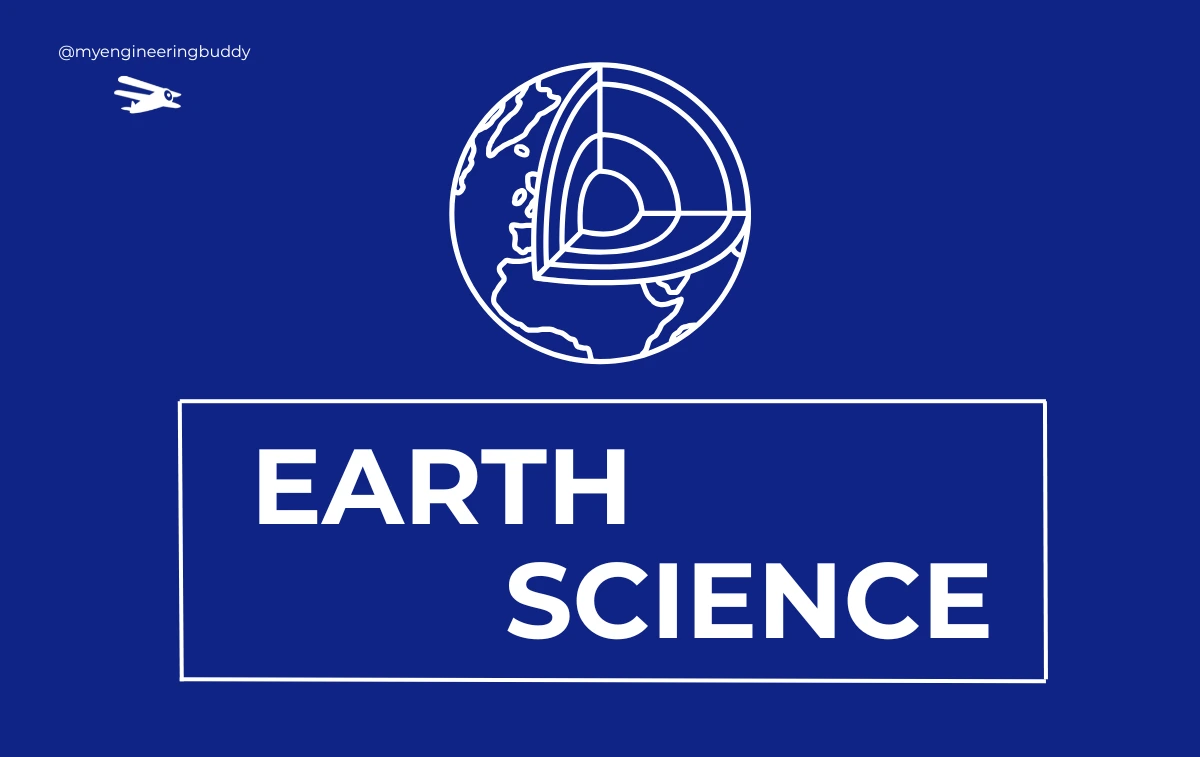Earth Science tutoring (online or in-person) helps students master geology, meteorology, and climate topics. Personalized tutoring and homework help clarify complex concepts, improve grades, and build confidence in STEM topics.

What is Earth Science?
Earth Science is the study of our planet – its rocks, oceans, atmosphere, and place in space. It weaves together geology, meteorology, oceanography, astronomy, and environmental science. In practical terms, an Earth Science class might cover topics like the rock cycle, weather patterns, climate change, and the solar system. As the National Earth Science Teachers Association explains, Earth Science is “an integrated study of the Earth’s history, composition, and structure, its atmosphere and oceans, and its environment in space”. This broad scope means students explore many phenomena, from how earthquakes happen to what makes a hurricane. Because Earth Science relates closely to the world around us, students can often step outside and find real examples – making it a very hands-on, interdisciplinary subject.
Why Earth Science Matters
Earth Science is deeply relevant to our daily lives. It teaches us about natural resources (like water and minerals), weather, and environmental risks. For example, as one position statement notes, understanding floods, tornadoes, hurricanes, volcanoes, and earthquakes all requires Earth Science knowledge. In today’s world, we face environmental and economic challenges – acid rain, water shortages, and climate change – that require Earth Science literacy. Learning these topics helps students become informed citizens who can discuss issues like resource use and sustainability. In fact, experts say basic Earth Science education is “the key to development of an informed citizenry” because most human activities interact with the planet.
A strong foundation in Earth Science also opens career opportunities. Geoscience and environmental jobs are expected to grow in the coming decade. The U.S. Bureau of Labor Statistics projects about a 7% growth for environmental scientists and specialists through 2033, reflecting demand for people who can address climate and resource challenges. Similarly, overall geoscience professions are forecast to expand about 5.6% by 2033. These figures mean that skills learned in high school and college Earth Science classes can lead to real-world jobs in geology, meteorology, environmental science, and related fields.
Learning Challenges in Earth Science
Despite its importance, Earth Science can be challenging to learn. Many concepts involve vast scales of time and space that are hard to visualize. For example, the idea of “geologic time” – millions of years – is so huge that one researcher said it’s hard to even recognize “the immense durations of the Earth’s past”. Students may struggle to imagine events that happened hundreds of millions of years ago, or to relate them to anything in their everyday experience. Other topics, like erosion, rock formation, or global atmospheric circulation, involve complex processes that build on earlier science knowledge. Without a solid math or science background, learners often find these lessons abstract.
How an Earth Science Tutor Can Help
An experienced Earth Science tutor can bridge those gaps with personalized attention. In a tutoring session, the lesson is tailored to the student’s pace and needs, unlike a one-size-fits-all classroom. A tutor can break down complex topics step-by-step, use real-world examples (like local weather patterns or a rock collection), and repeat explanations until the student really understands. Tutors often use analogies, visuals, and interactive tools that suit the learner’s style – for example, 3D models of Earth’s layers or animations of tectonic plate movements. This individualized approach makes learning more effective and less frustrating.
- Personalized Instruction: A tutor designs each session around the student’s weakest areas, whether it’s understanding geological time, the water cycle, or climate trends.
- Homework & Assignment Help: Tutors work through specific Earth Science problems or lab reports with the student. They give Earth Science homework help (often called Earth Science HW help) and assignment help so no question goes unanswered.
- Focused Practice: The tutor provides targeted exercises on tricky topics (e.g. rock identification or weather charts) to build confidence through practice.
- Exam Preparation: Tutors can review for tests and quizzes, teaching test-taking strategies and common question types in Earth Science (such as multiple-choice on ecosystems or short-answer on volcanoes).
- Expert Teacher: Many tutors are former Earth Science teachers or STEM majors, so they effectively act as a private Earth Science teacher, filling in gaps that classroom teaching might miss.
- Boosting Confidence: One-on-one tutoring gives instant feedback and encouragement. Over time, this builds a student’s confidence. Research shows that students who receive tutoring often develop more positive attitudes toward their subjects, leading to better learning outcomes.
- Proven Results: The impact of tutoring is measurable. In one study, tutored students had about a 7% higher course success rate (meaning getting a C or better) than similar students without tutoring. In STEM classes specifically, students who worked with tutors saw success rates about 13% higher than average. In other words, high-impact tutoring can significantly raise grades, helping students move from the middle toward the top of their class.
Online vs In-Person Earth Science Tutoring
Both in-person and online tutoring have advantages. In-person sessions can use physical models and direct interaction, which some students prefer. However, online tutoring offers unique benefits. The online tutoring market is booming – it was worth about $10.4 billion globally in 2024 and is growing rapidly. For Earth Science students, online tutoring means accessing expert help from anywhere, any time. For example, EdisonOS notes that online platforms can provide 24/7 support, so students can get Earth Science homework help outside school hours. This flexibility makes it easier to fit tutoring into busy schedules.
- Flexible Access: Online tutoring platforms like MEB let students schedule sessions whenever they need, even evenings or weekends. Students can get help whenever needed, regardless of location or time zone.
- Access to Experts: The internet connects you with a wider pool of tutors. Online platforms connect students with qualified Earth Science teachers and tutors worldwide, so your student could work with a specialist in climate science or oceanography even if no such expert is nearby.
- Interactive Tools: Digital tools enhance learning. Tutors can use virtual whiteboards, videos, and simulations to make abstract concepts tangible (for example, an animation of Earth’s layers or an interactive weather map).
- Convenience & Cost: No commute is needed, saving time. Online tutoring is often more affordable too: typical online tutor rates range around $25–$50 per hour, whereas in-home tutoring might cost $40–$80 per hour.
- In-Person Benefits: An in-person tutor might bring rock samples, lab equipment, or accompany you on local field trips (like examining a streambed). However, this usually requires coordinating schedules and may involve higher fees.
Finding and Hiring an Earth Science Tutor
When selecting an Earth Science tutor, look for certain qualities:
- Solid Background: Choose tutors who have strong Earth Science credentials (such as a degree in geology, meteorology, or education). Many tutors are certified science teachers or STEM majors who know the curriculum well.
- Experience: Tutors who have classroom or tutoring experience in Earth Science are often more effective. Ask if they have helped students with topics like plate tectonics, climate, or lab work before.
- Good Fit: A great tutor is patient, communicates clearly, and adapts to the student’s style. Some online platforms show tutor reviews, which can help you gauge this match.
- Trial Lesson: Before committing, see if a tutor offers a short initial session. This lets you judge their teaching style and see if your student connects with them. Some sites has a review section too where you can check feedback from the students.
- Specific Help: If your student needs it, ensure the tutor offers Earth Science homework help or Earth Science assignment help for particular tasks. Clear communication about goals (like improving lab reports or test scores) will help the tutor tailor sessions.
- Hiring: In practice, “hiring an Earth Science tutor” can be done through reputable tutoring companies or platforms. You can search online tutoring marketplaces or ask school counselors for referrals. Look for services that guarantee qualified tutors and let you choose between online or in-person sessions.
In summary, Earth Science tutoring provides personalized support that can make challenging topics clear and engaging. Whether it’s reviewing homework problems, preparing for exams, or simply exploring fascinating Earth phenomena, a dedicated tutor can light the way to better understanding. With expert guidance and practice, students often find themselves more curious and confident about Earth Science.
FAQs
Q: What is Earth science tutoring?
A: Earth science tutoring is personalized one-on-one instruction that helps students understand Earth science topics (geology, weather, etc.) more clearly.
Q: Can an Earth Science tutor really improve my grades?
A: Yes, studies show that students who receive tutoring tend to perform several percentage points better in their courses than peers without it.
Q: What does Earth Science homework help involve?
A: A tutor will guide you through homework questions or assignments step-by-step, making sure you understand each concept needed to solve Earth Science problems.
Q: Is online Earth Science tutoring effective?
A: Absolutely – online tutoring offers the same interactive benefits as in-person sessions with added flexibility. Tutors use video chat and virtual tools to explain concepts, often providing 24/7 support.
Q: How do I find a good Earth Science tutor?
A: Look for someone with relevant science background, good reviews, and a teaching style your student likes; you can hire a tutor via trusted online tutoring platforms or local education services.
Q: Who should consider hiring an Earth Science tutor?
A: Any student struggling with Earth Science concepts, preparing for exams, or needing extra help with labs and projects can benefit from an Earth Science tutor’s guidance.
Related Subjects:
Atmospheric Science
Geochemistry
Geology
Geomorphology
Geophysics
Meteorology
Mineralogy
Oceanography
Paleontology
Petrology
Sedimentology
Seismology
Volcanology
******************************
This article provides general educational guidance only. It is NOT official exam policy, professional academic advice, or guaranteed results. Always verify information with your school, official exam boards (College Board, Cambridge, IB), or qualified professionals before making decisions. Read Full Policies & Disclaimer , Contact Us To Report An Error

